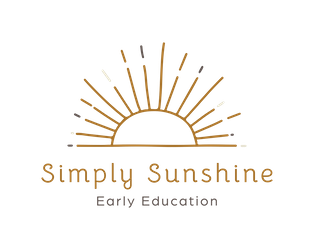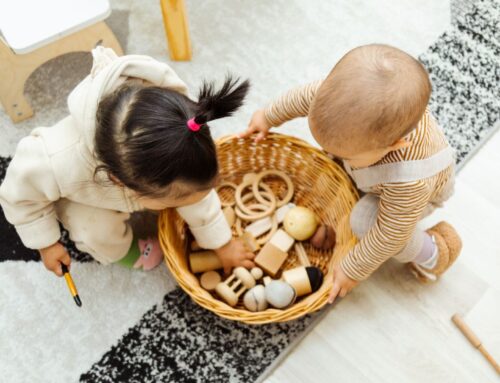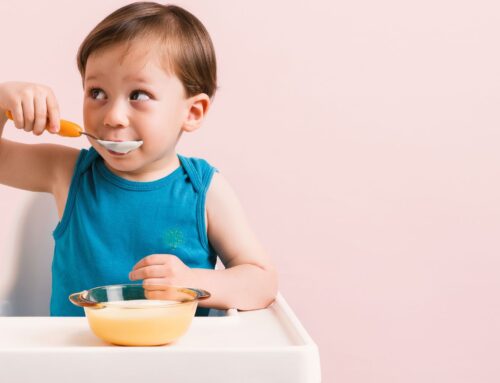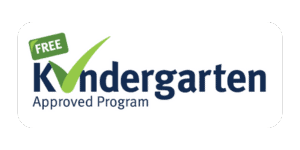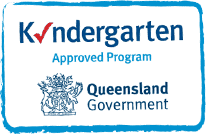As we head towards the end of the year you might be wondering – is my Kindy child actually going to be ready for ‘big school’?? It’s a huge transition for children and families from the small and supportive environment of Kindergarten to the larger, unknown environment of school.
Having trained as a Primary School Teacher and then spending most of my time working with the Kindergarten age group I hope I have some wisdom to offer.
When we are supporting our little ones with these big transitions, the most important thing to remember is that they are all individuals. Each child will develop in their own way and along their own timeline. Comparing children tends to bring stress for families (and for children!) so try to start focusing on your own child’s journey. Some children will be ready to move into the primary school environment, but some will benefit from an extra year of play based education in Kindy.
For parents it is easy to get focused on easily defined statistics
- Does my child know their colours?
- Can they count to 100?
- Can they write their name?
However as early childhood teachers we take a more holistic view and look at all areas of children’s development. When we hold parent teacher interviews I love to ask ‘What do you think being ready for school means?’. This gives me an insight into where each family is out and how I can best support them.
So how do you know if your child is ready?
The best thing you can do is talk to their educators! As a Kindy teacher I see how your child is developing within our environment. I understand the learning journey they are on and can suggest how they will go with the transition. I can also provide you with strategies that you can work on at home to help support them!
There are a few key areas that we focus on when we are considering school readiness.
Emotional Regulation
Emotional regulation is how we handle and react to situations. It’s the way we respond to anger, frustration and disappointment. It’s also how we react when we get excited! Emotional regulation comes into play when we have to separate from a familiar person or enter a new situation. It is how we handle our feelings and emotions about life. This is a skill that young children are still developing (and some adults I know!). Children are impulsive and egocentric. As the adults in their lives we need to model, coach and explicitly teach appropriate ways to react and manage emotions. As they are learning, children will have moments where they feel out of control. In the early years there is always an adult nearby to help support them through their emotions, however in school they need to be more able to handle these situations themselves.
To get ready for school we work on
- Recognising and naming emotions
- Identifying how they make us feel
- Developing strategies for handling different emotions
- Teaching children what happens when they don’t get their own way and how to manage when this happens.
Social Skills
Social skills are a huge part of children’s development! All children (and adults) have different personalities, some naturally gravitate towards group play while others prefer individual play. However to be able to cope in the ‘big school’ environment children need to be able to successfully interact and engage with peers. These skills help children to work together, which is a big part of primary school education.
To get ready for school we work on:
- Taking turns through group games
- Learning to wait to speak
- Developing skills for sharing resources
- Conflict resolution (particularly without adult assistance)
- Negotiating friendships and play situations
Self help Skills
If your child knows every letter of the alphabet and can count to 100 but can’t take care of themselves or their belongings – big school will be a struggle. One of the key areas we focus on in early childhood is self help and hygiene skills – independent toileting, hand washing and tissue etiquette are so important, especially in our current health climate. Children also need to be able to open and close their own lunch boxes and manage their school bags.
To get ready for school we work on:
- Fine motor skills (through playdough, threading, puzzles)
- Independent toileting
- Using a self help station for sunscreen, tissues etc.
- Speaking up when they need help
These are a few of the developmental areas that we consider when looking at young children’s school readiness. I encourage you to talk to your child’s teacher if you have any concerns. There might be extra things you can do to help support your child through this transition. Or they might benefit from an extra year at Kindergarten to continue their development in a play based environment.
-Emma Thomas

